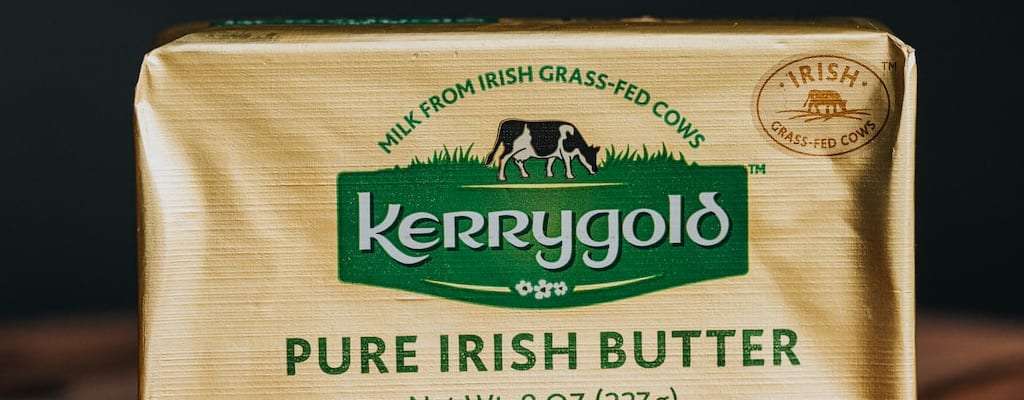butter wouldn’t melt in someone’s mouth: Idiom Meaning and Origin
What does ‘butter wouldn't melt in someone's mouth’ mean?
The idiom "butter wouldn't melt in someone's mouth" means that someone appears innocent or pure even though they may be doing something wrong or deceitful.

Idiom Explorer
The idiom "jive turkey" is a derogatory term used to describe someone who is not trustworthy or who speaks insincerely.
The idiom "honey-mouthed" refers to someone who speaks in a sweet or flattering manner, often insincerely or with the intention of manipulating others.
The idiom "hold someone's feet to the fire" means to put pressure on someone or hold them accountable for their actions or words.
The idiom "hold one's tongue" means to not speak or to remain silent, typically when faced with a situation where speaking might be inappropriate or cause trouble.
The idiom "hiding to nothing" means to be in a situation where one is bound to fail or face certain defeat, regardless of the efforts made. It implies a futile or hopeless endeavor with no chance of success or favorable outcome.
The idiom "hell mend someone" means that someone will have to suffer the consequences or outcomes of their actions, usually in a negative way.
The idiom "have someone on toast" means to have someone in a vulnerable or powerless position, typically in a confrontational or competitive situation.
Chilling Mystery: Innocent Lips
The idiom "butter wouldn't melt in someone's mouth" is a well-known expression in the English language. It emerged in the early 19th century and remains prevalent in contemporary usage. The idiom is typically used to describe someone who appears innocent and angelic on the surface, but is actually deceitful or capable of malicious behavior.
The primary meaning of the idiom revolves around the idea that butter, a soft substance that melts easily, would not melt in someone's mouth. This creates an image of someone who is so composed and controlled that even something as delicate as butter would not be affected by their warmth or words. It conveys the idea of someone being emotionless and unyielding, which contrasts with their outwardly harmless appearance.
The idiom is frequently used to describe individuals who project an aura of innocence and sweetness, but act in a way that contradicts this facade. It implies that such individuals are skilled at concealing their true nature behind a mask of purity. This contrast between appearance and reality often reveals unexpected layers of complexity and deceitfulness.
The idiom can be traced back to various literary works and popular culture references. For example, Charles Dickens' novel "Oliver Twist" uses this idiom to describe the character of Noah Claypole. In the story, Noah appears innocent and harmless, but later reveals his true nature. This usage highlights the deceptive nature of the idiom and its ability to capture the essence of hidden intentions.
The idiom "butter wouldn't melt in someone's mouth" is also related to the expression "devil in disguise." Just as butter wouldn't melt in someone's mouth, a devil in disguise appears innocent and harmless on the surface, but is actually wicked and deceitful. Both idioms explore the theme of hidden intentions and the contrast between appearance and reality.
Another related idiom is "honey-mouthed," which also conveys the idea of someone appearing sweet and innocent. However, unlike butter that wouldn't melt in someone's mouth, honey-mouthed individuals use charm and flattery to deceive others. While they may seem pleasant and friendly, their words are often insincere and manipulative.
Lastly, the idiom is related to the phrase "few cards shy of a full deck." While someone who appears innocent and angelic may seem completely composed, they may actually lack intelligence or common sense. This idiom suggests that their outwardly harmless appearance masks a lack of mental capacity, similar to the idea that butter wouldn't melt in their mouth.
The usage of the idiom "butter wouldn't melt in someone's mouth" has become familiar and recognizable among English speakers. Its ability to evoke the concept of hidden intentions and deceitfulness makes it a popular choice for conveying complex ideas in a concise and relatable manner. Whether used in classic literature or everyday conversations, this idiom continues to resonate with people and highlight the complexities of human behavior.
The idiom "butter wouldn't melt in someone's mouth" is a powerful expression that captures the contrast between appearance and reality. It is often used to describe individuals who project an innocent and angelic facade, but are actually deceitful or capable of malicious behavior. The idiom's relation to idioms such as "devil in disguise," "honey-mouthed," and "few cards shy of a full deck" further emphasizes this concept of hidden intentions and the complexity of human nature. With its long-standing presence in the English language and its ability to convey meaningful ideas in a concise manner, this idiom remains a valuable linguistic expression.
Example usage
Example 1: She looked so innocent, like butter wouldn't melt in her mouth, but she was actually the mastermind behind the whole plan.
Example 2: He acted so sweet and polite, as if butter wouldn't melt in his mouth, but I knew he was just putting on an act to get what he wanted.
Example 3: The child stood there with an innocent face, as though butter wouldn't melt in his mouth, while his mother scolded him for stealing cookies from the jar.
More "Expression" idioms



